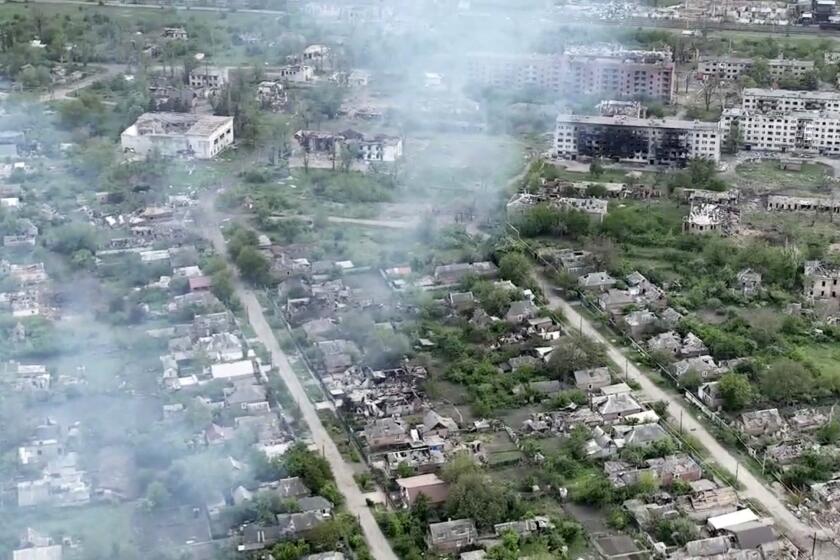N. Korea Gets Apology From Japan Delegation : Diplomacy: The ‘agony’ of occupation is deplored. Pyongyang’s right to compensation is recognized.
Shin Kanemaru, an influential member of Japan’s ruling Liberal Democratic Party, flew into Pyongyang with a bipartisan delegation Monday and offered North Korea an apology for the “agony and damage” that Japan inflicted during its 1910-1945 colonization of Korea.
Kanemaru, a former vice prime minister, spoke Monday night at a banquet and, although there are no diplomatic relations between the two countries, the unprecedented event was televised in Tokyo.
The Japanese group, including Makoto Tanabe, a vice chairman of the Socialist Party, members of Parliament, Japanese government officials and reporters, flew to Pyongyang in a chartered Japan Airlines plane, the first such direct flight from Tokyo. On previous trips, Japanese have been forced to go through Beijing.
“The actions of our country inflicted hard-to-endure agony and damage upon your people, and in (our) heart (we) reflect and apologize,” Kanemaru said.
He was carrying a letter from Prime Minister Toshiki Kaifu expressing apologies and recognition of North Korea’s right to demand compensation. But Kaifu signed the letter as president of the ruling party, not as prime minister. Japan’s Foreign Ministry insisted that no governmental action could be taken except in the process of negotiating the establishment of diplomatic relations.
Kim Yong Sun, secretary for international affairs of the North Korean Workers Party, was shown on TV applauding Kanemaru. Then, addressing the guests, Kim called the Kanemaru-Tanabe mission “the starting point of improvement in relations between the People’s Republic of Korea and Japan.”
Before leaving Tokyo, Kanemaru said he will hand Kaifu’s letter to North Korean President Kim Il Sung in a meeting scheduled for Wednesday. Tanabe is due to be present. The meeting with the 78-year-old North Korean leader is expected to determine the success or failure of what Kanemaru has called an attempt to “break a hole in the wall” that has built up between Japan and North Korea since 1910.
Thirty-five years of Japanese colonization, ending with Japan’s World War II defeat and Korea’s division, have been followed by another 45 years in which Pyongyang and Tokyo have engaged in sporadic non-government contacts, most of them conducted through Japan’s Socialist Party.
Until now, the Liberal Democrats as well as the Tokyo government have maintained official contacts only with South Korea, with which diplomatic relations were established in 1965.
U.S. and South Korean diplomats welcomed Kanemaru’s trip as a potential contribution toward opening up North Korea’s closed society and reducing military tension between north and south. An estimated 1.5 million troops of the north and south face each other across the Demilitarized Zone. South of the DMZ, about 43,000 American troops are deployed in defense of South Korea.
The Japanese mission’s success or failure is expected to hinge on whether the North Koreans will release two Japanese fishermen they have held for seven years as spies and on whether they will agree to open contacts with the Tokyo government.
Pyongyang has insisted that in light of Tokyo’s ties with Seoul, entering into full diplomatic relations with Japan would be tantamount to recognizing the permanent division of Korea.
Before leaving Tokyo, Kanemaru said he would propose that the two nations set up unofficial liaison offices in each other’s capital. He was said to be ready to tell North Korea that Japan is willing to approve direct air service by chartered flights, to grant favorable tariff treatment to imports from North Korea and to send a government-led mission to promote technological cooperation.
JAPAN’S STRING-PULLER
Shin Kanemaru is a master at political deals. H2
More to Read
Start your day right
Sign up for Essential California for news, features and recommendations from the L.A. Times and beyond in your inbox six days a week.
You may occasionally receive promotional content from the Los Angeles Times.






